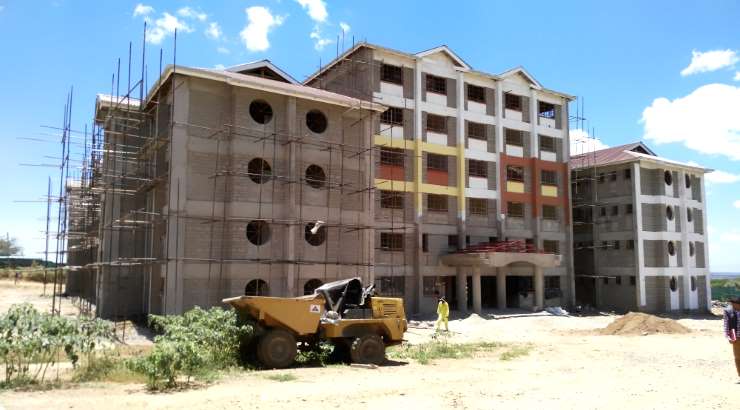Residential Projects
Exciting Times for Kenya’s Student Housing Developers
Local universities have 280,000 bed spaces against a student population of 769,500.

A fast-expanding population of university students in Kenya is creating enormous opportunities for investors to build student accommodation facilities across the country.
According to a study by real estate researchers Jumia House, local universities have a combined 280,000 bed spaces against a student population of 769,500 which accounts for 40 per cent of the country’s total housing shortage.
High student enrolment attributable to the introduction of the self-sponsored module and the directive issued in 2011 instructing all universities to implement a double intake has played a major role in the current shortage of accommodation in the universities.
The strain on on-campus housing has forced students to seek nearby private housing at exorbitant costs. Those who cannot afford such units are forced to live in dilapidated, crime-infested dwellings which affect their overall well-being.
The deficit has caught the eye of the real estate sector as a powerful alternative asset class giving rise to an increasing investor interest in the market segment.
Although this offers some relief to students, the location of the houses as well as the exorbitant rents are in most cases proving to be a big challenge to many scholars and this has forced universities to build hostels for their students.
The universities are, however, facing several hurdles. While most of these institutions possess vast tracts of land, the huge cost associated with construction is proving to be a major roadblock to the provision of adequate accommodation.
Though the government has tripled its funding to public universities in the last four years to about Sh66 billion, the money is not enough to support such a degree of capital outlay.
Public Private Partnerships
Consequently, local public universities have decided to venture into public-private partnerships (PPPs) where they will provide land while the partners will construct the accommodation facilities.
The PPP models will involve a build-own-transfer (BOT) framework that will allow private investors to build hostels and collect rent for a specified period (generally 15-20 years) before reverting the assets to institutions of higher learning.
Besides being quite affordable, on-campus accommodation is highly beneficial to students since it reduces the time and money wasted while commuting to and from campus.
RELATED: Nairobi Tycoons Splash Out Billions on Student Hostels
It also enables students to access all university facilities crucial to their academic development even after dusk without having to worry about safety.
Kenyatta University is, for example, finalising the process of negotiating a PPP project which will see the construction of a moderately priced hostel that will house 10,000 students.
The Sh5 billion project whose groundbreaking is scheduled for 2017, will come as a great relief to students residing in the crowded estates around the university especially those living in Kilometre 101 commonly referred to as KM, an informal neighbourhood situated outside the main campus.
“We are at the financial close stage for the Sh5 billion project and hope to break ground in 2017. The project is on a build, operate and transfer model and in 20 years, the property will be transferred to the university,” said Kenyatta University project leader Dr Gachanja.
He added that the venture will keep the university financially stable since the institution will not have to incur construction expenses.
Pilot Project
If successful, the Kenyatta University venture which is being developed as a pilot project will be rolled out in other public universities across the country opening the way for the use of idle land such as the Jumu area near Jomo Kenyatta University.
In 2014, Jomo Kenyatta University of Science and Technology, Egerton, Maseno, Kenya School of Government and South Eastern Kenya University were all cleared by the State to fund construction of their student hostels through public-private partnerships.
RELATED: State Courts Investors in Sh20bn Student Hostels Project
JKUAT was seeking investors to build hostels for 20,000 undergraduates at its main campus. The plan also included the construction of 50 guest houses and a 1,000-capacity hostel for graduate students.
The university was also seeking investors for a 4,600-capacity tuition block at its main campus and lecture halls to house 7,000 students at its Westlands campus.
Egerton University was seeking to develop hostels for 5,000 undergraduate and 1,000 graduate students, while Maseno was looking to develop a 10,000-capacity “Student Village” at its main campus.
South Eastern Kenya University was seeking investors to build a hostel for 7,000 undergraduates and 1,000 graduate students next to its main campus, while Embu University College was looking to build a 4,000-capacity accommodation facility.
Such projects have had a high success rate in solving student accommodation deficits in universities across the globe, especially in Egypt, Belgium, South Africa and India and it is hoped that the model will help clear Kenya’s backlog.
PPPs present a great opportunity for investment based on student income, definite rental periods and high demand which will translate to high occupancy rates.














